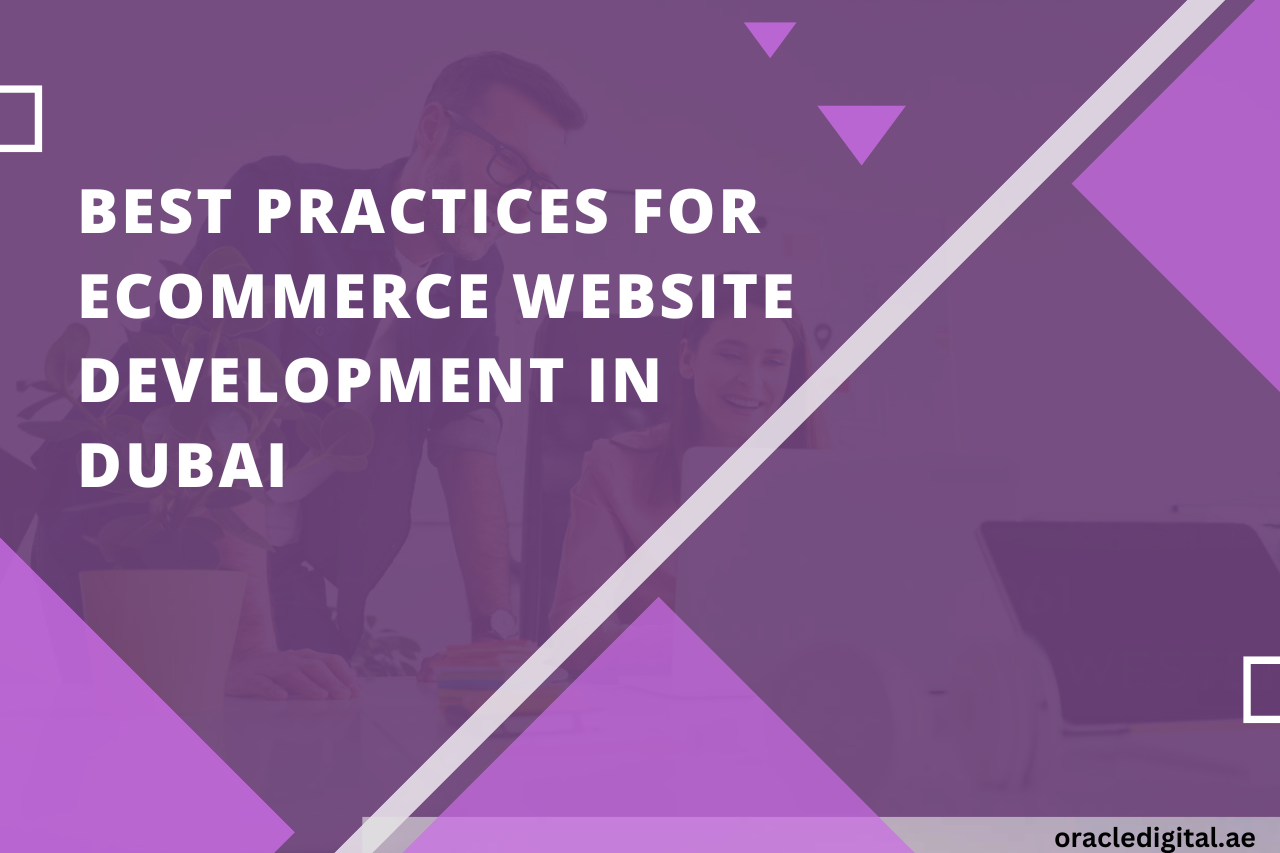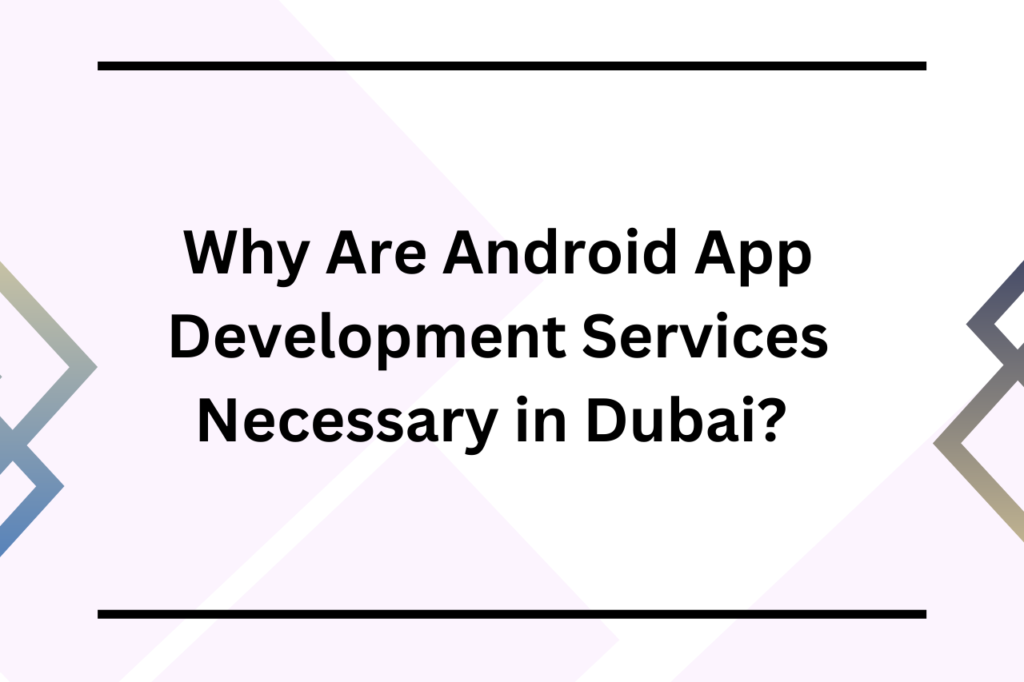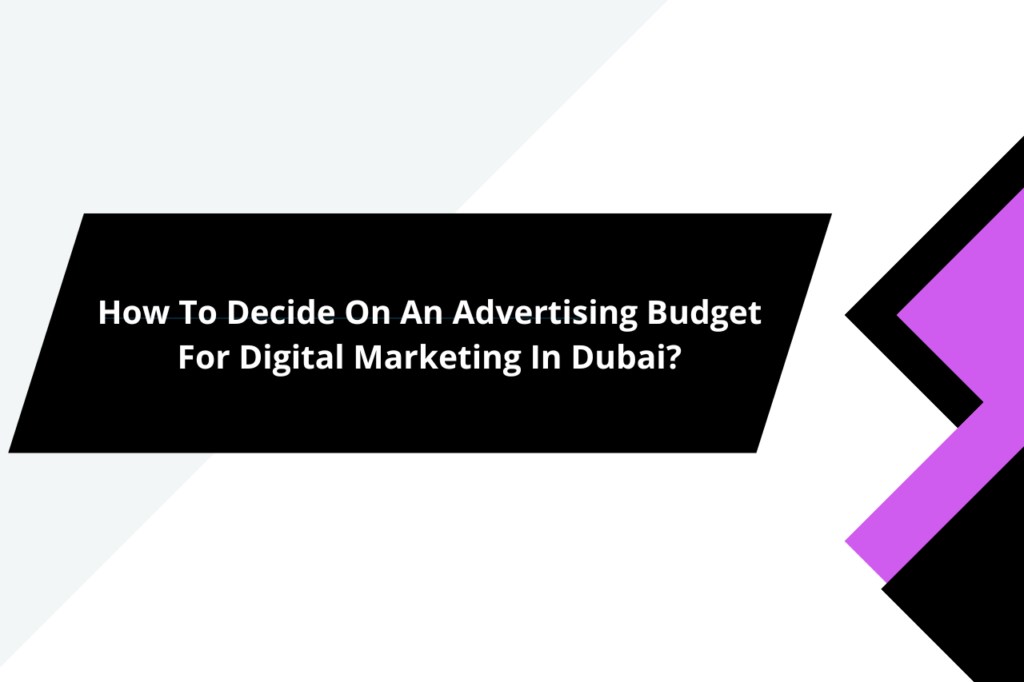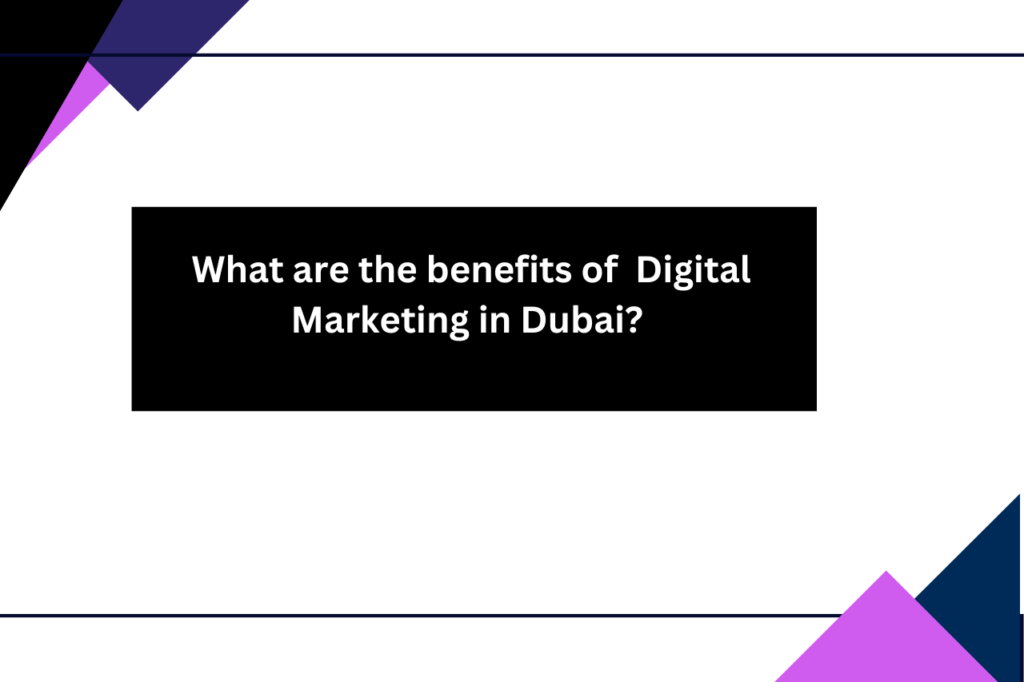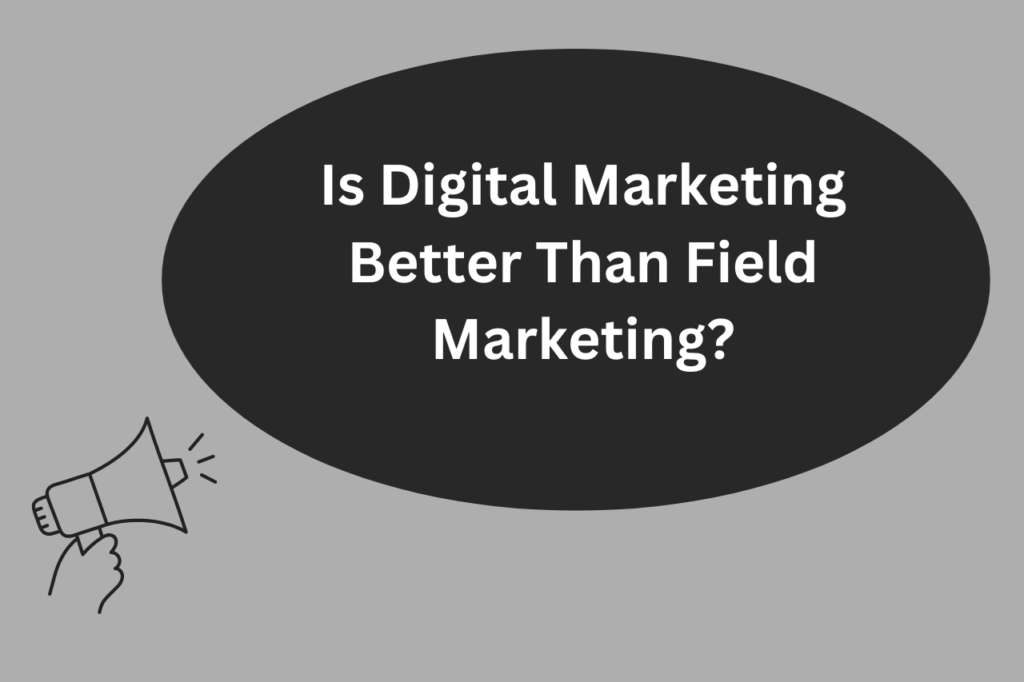The ecommerce industry in Dubai has been rapidly growing in recent years, with the Covid-19 pandemic accelerating the trend towards online shopping. With more and more consumers opting for online transactions, it is essential for businesses in Dubai to have a strong online presence to stay competitive. This is where ecommerce website development comes into play.
Ecommerce website development involves creating a website that enables businesses to sell their products or services online. In Dubai, ecommerce website development has become an essential part of business operations, with retailers and consumers alike preferring the convenience of online shopping. To succeed in the competitive ecommerce market in Dubai, it is crucial to follow best practices in website development.
In this blog, we will discuss the best practices for ecommerce website development in Dubai that can help businesses improve user experience, drive sales, and stay ahead of the competition. By implementing these best practices, businesses can create a website that meets the needs and expectations of customers in Dubai and beyond.
MOBILE-OPTIMIZED DESIGN
Mobile-optimized design refers to designing a website to provide an optimal user experience on mobile devices such as smartphones and tablets. This involves creating a ecommerce website template that adjusts to fit the screen size of different mobile devices, ensuring that all content is easily accessible and readable.
Mobile devices are the most common way for consumers in Dubai to access the internet and shop online. A mobile-optimized design ensures that users can easily navigate and use a website on their mobile devices, providing a positive user experience that can lead to increased sales and customer loyalty.
To implement mobile-optimized design, businesses should consider the following:
- Use responsive design techniques to ensure that the website layout adjusts to different screen sizes
- Optimize images and videos for mobile devices to reduce load times
- Use mobile-friendly fonts and font sizes to ensure that text is easily readable on small screens
- Simplify navigation and minimize the need for scrolling and zooming
- Test the website on different mobile devices to ensure that it works well on all devices
By implementing these mobile-optimized design practices, businesses can ensure that their ecommerce website is accessible and user-friendly on mobile devices, improving the overall customer experience and increasing the likelihood of sales.
LOCALIZATION
Localization involves adapting a website to meet the specific needs and preferences of a particular market or region. In the context of ecommerce website design development in Dubai, localization may include translating website content into Arabic, offering local payment methods, and tailoring marketing campaigns to the cultural and social norms of the local market.
Dubai is a multicultural and multilingual city, with a diverse population that includes both locals and expatriates. To effectively reach and engage with this audience, it is essential for businesses to implement localization practices. This can help build trust with customers, improve brand perception, and increase sales.
To implement localization, businesses should consider the following:
- Translate website content into Arabic and other relevant languages
- Offer local payment methods such as cash on delivery and online banking options
- Customize the website design and user interface to reflect local preferences and cultural norms
- Use local language and cultural references in marketing campaigns
- Conduct market research to gain insights into local consumer behavior and preferences
SECURITY
Website security refers to measures taken to protect a website from unauthorized access, data theft, and other security threats. In the context of ecommerce website development in Dubai, website security is crucial to ensure that customer data and transactions are kept secure and protected from fraud.
With the rise of online shopping, ecommerce websites have become a prime target for cybercriminals looking to steal sensitive information such as credit card details and personal information. Businesses in Dubai need to implement strong security measures to protect their customers and their own reputation.
To implement website security, businesses should consider the following:
- Use secure sockets layer (SSL) encryption to protect data transmitted between the website and users
- Implement strong authentication and access control measures to prevent unauthorized access to the website and its data
- Regularly update software and plugins to prevent vulnerabilities from being exploited
- Use a web application firewall (WAF) to monitor and filter website traffic for potential security threats
- Conduct regular security audits and vulnerability assessments to identify and address any potential security issues
These practices help businesses ensure that their ecommerce website is secure and protected from potential security threats, giving customers peace of mind and maintaining the trust and reputation of the business.
FAST LOADING SPEED
Fast loading speed refers to the time it takes for a website to fully load on a user’s device. In the context of ecommerce website development in Dubai, fast loading speed is important to ensure a positive user experience and prevent users from abandoning the website due to slow loading times.
In a city like Dubai, where people are accustomed to fast-paced and efficient service, slow loading websites can negatively impact user experience and lead to a loss of potential customers. In addition, website speed is also a ranking factor for search engines, meaning that slow-loading websites may not appear as prominently in search results.
To implement fast loading speed, businesses should consider the following:
- Optimize images and videos to reduce file size and load times
- Use a content delivery network (CDN) to serve content from a server closer to the user, reducing latency and improving load times
- Minimize the use of external scripts and plugins that can slow down website performance
- Use caching and compression techniques to reduce server response time and load times
- Test website speed regularly using tools like Google’s PageSpeed Insights to identify and address any performance issues
Implementation of these practices improve customer satisfaction and increase the likelihood of sales by providing fast and efficient user experience.
USER EXPERIENCE
User experience (UX) refers to the overall experience a user has when interacting with a website, including ease of navigation, visual design, and content. In the context of ecommerce website development in Dubai, UX is crucial to ensure that customers have a positive experience when shopping online and are more likely to return to the website in the future.
Dubai is a city with a high standard of living and sophisticated consumer base, meaning that businesses need to provide a top-notch user experience to attract and retain customers. A positive user experience can help build customer loyalty, increase customer satisfaction, and improve brand perception.
To implement a positive user experience, businesses should consider the following:
- Ensure that the website is easy to navigate, with clear and intuitive menus and search functionality
- Use high-quality product images and videos to showcase products effectively
- Offer detailed product descriptions and reviews to help customers make informed purchasing decisions
- Implement a responsive design that adjusts to different screen sizes and devices
- Use a visually appealing and consistent design throughout the website
- Conduct user testing and gather feedback from customers to identify areas for improvement
Through these practices, businesses in Dubai can create a website that provides a seamless and enjoyable shopping experience for customers, increasing the likelihood of repeat purchases and positive word-of-mouth recommendations.
MARKET INTEGRATION
Marketing integration refers to the process of integrating different marketing channels and strategies to create a cohesive and consistent brand experience for customers. In the context of ecommerce website development in Dubai, marketing integration can help businesses reach and engage with their target audience effectively and drive sales.
Dubai is a highly competitive market, with many businesses vying for the attention of consumers. By implementing marketing integration, businesses can ensure that their marketing efforts are coordinated and effective, helping them to stand out from the crowd and drive more sales.
To implement marketing integration, businesses should consider the following:
- Use social media to promote the website and engage with customers
- Implement email marketing campaigns to keep customers informed of new products and promotions
- Use search engine optimization (SEO) techniques to improve website visibility in search engine results
- Implement pay-per-click (PPC) advertising campaigns to drive traffic to the website
- Use analytics tools to track and measure the effectiveness of marketing efforts and make data-driven decisions
By implementing these marketing integration best practices, businesses in Dubai can create a coordinated and effective marketing strategy that helps them to reach and engage with their target audience, driving more sales and increasing brand awareness.
ANALYTICS AND TRACKING
Analytics and tracking refer to the process of collecting and analyzing data related to website performance and customer behavior. In the context of ecommerce website development in Dubai, analytics and tracking can help businesses understand how customers interact with their website and make data-driven decisions to improve website performance and drive sales.
Dubai is a highly competitive market, and businesses need to continuously monitor website performance and customer behavior to stay ahead of the competition. By implementing analytics and tracking, businesses can gain valuable insights into how customers interact with their website, which products are popular, and where there may be areas for improvement.
To implement analytics and tracking, businesses should consider the following:
- Use web analytics tools such as Google Analytics to track website performance and customer behavior
- Implement conversion tracking to measure the effectiveness of marketing campaigns and identify areas for improvement
- Use heatmaps and user testing to gain insights into how customers interact with the website
- Set up goals and funnels to track customer behavior and identify areas for improvement
These practices can help businesses in Dubai gain valuable insights into website performance and customer behavior, making data-driven decisions to improve website performance and drive sales.
PAYMENT GATEWAYS
Payment gateways are a critical component of any ecommerce website. They are third-party providers that handle online payments on behalf of businesses. Payment gateways facilitate the transfer of funds between the customer’s bank account and the merchant’s bank account.
In Dubai, a reliable and secure payment gateway is crucial for any ecommerce website. The UAE is known for its high levels of e-commerce adoption, and with a growing number of businesses moving online, consumers have come to expect a seamless and secure payment experience. By offering multiple payment options and integrating with popular payment gateways, businesses can provide customers with a convenient and hassle-free shopping experience, which can help improve customer satisfaction and loyalty.
To implement payment gateways, businesses should consider the following:
- Choose a payment gateway provider that is compatible with their website platform.
- When selecting a payment gateway provider, businesses should consider the fees charged, the security features offered, and the payment options supported. It’s also important to ensure that the provider is compliant with local regulations and laws, such as the UAE’s Payment Card Industry Data Security Standard (PCI DSS).
- Offer multiple payment options to customers, such as credit cards, debit cards, e-wallets, and bank transfers, to ensure that customers have a variety of options to choose from.
CUSTOMER SUPPORT
Customer support is a critical component of any ecommerce website in Dubai. It involves providing customers with the necessary assistance before, during, and after their purchase to ensure that they have a positive shopping experience. Customer support can take many forms, such as live chat, email support, phone support, social media support, and knowledge base resources.
In Dubai, customer support is crucial for ecommerce websites because it helps build trust and credibility with customers. With a growing number of businesses moving online, competition is high, and customers have many options to choose from. By providing exceptional customer support, businesses can differentiate themselves from their competitors and build customer loyalty.
Customer support can help reduce shopping cart abandonment rates and increase sales. By offering prompt and helpful support to customers who have questions or concerns, businesses can address any issues quickly and prevent customers from abandoning their shopping cart.
To implement customer support, businesses should consider the following:
- Decide on the types of support channels they will offer such as live chat, email support, phone support, social media support, and knowledge base resource, and ensure that they have the necessary resources and staff to provide prompt and helpful support to customers.
- Have a system in place for tracking and resolving customer support requests.
- Offer support in multiple languages to cater to a diverse customer base.
SOCIAL MEDIA INTEGRATION
Social media integration involves incorporating social media features and functionality into an ecommerce website to provide customers with a seamless shopping experience. This can include features such as social login, social sharing buttons, and the ability to connect with the brand on social media.
In Dubai, social media integration is essential for ecommerce websites because social media plays a significant role in shaping consumer behavior. Many consumers turn to social media to research products and brands, read reviews, and get recommendations from friends and family. By incorporating social media into their ecommerce website, businesses can tap into this trend and engage with their customers in a more personal and meaningful way.
Social media integration can also help drive traffic to an ecommerce website and increase brand awareness.
To implement social media integration, businesses should consider the following:
- Add social sharing buttons to product pages and integrating social media feeds into the website.
- Offer social login, which allows customers to log in to the website using their social media credentials, making the checkout process more streamlined.
- Businesses should ensure that their social media profiles are up-to-date and active, so that customers can easily connect with them on social media.
- Use social media advertising to drive traffic to their website and promote products. Social media platforms such as Facebook and Instagram offer powerful advertising tools that can help businesses target their ideal audience and drive more sales.
SEARCH ENGINE OPTIMIZATION (SEO)
Search engine optimization (SEO) is the process of optimizing a website to improve its ranking on search engine results pages (SERPs). This involves various techniques such as keyword research, on-page optimization, link building, and content creation, among others. The goal of SEO is to drive organic traffic to a website by improving its visibility on search engines such as Google, Bing, and Yahoo.
In Dubai, SEO is critical for ecommerce websites because it helps businesses reach potential customers who are actively searching for products or services that they offer. By optimizing their website for relevant keywords and phrases, businesses can improve their visibility on search engines and attract more organic traffic to their website.
SEO helps businesses build credibility and authority in their industry. By creating high-quality, informative content that addresses their target audience’s needs and questions, businesses can position themselves as experts and thought leaders in their industry. This can help build trust with potential customers and encourage them to make a purchase.
To implement SEO, businesses should consider the following:
- Conduct thorough keyword research to identify relevant keywords and phrases that potential customers are searching for.
- Focus on creating high-quality, informative content that addresses their target audience’s needs and questions.
- Businesses can build links to their website by guest posting on relevant blogs, reaching out to influencers and industry experts for collaborations, and participating in online communities related to their industry. These activities can help improve the website’s domain authority and increase its visibility on search engines.
- Monitor their website’s performance on search engines using tools such as Google Analytics and Google Search Console.
PERSONALIZATION
Personalization refers to tailoring the content and user experience of an ecommerce website to suit the preferences and needs of individual users. By utilizing data such as user behavior, purchase history, and demographic information, ecommerce websites can provide a more personalized shopping experience for customers. This includes recommendations for products, personalized offers and promotions, and even personalized content.
Personalization is becoming increasingly important in the ecommerce industry in Dubai. With so many online retailers vying for customers’ attention, offering a personalized experience can help set a business apart from its competitors. Additionally, research has shown that personalized experiences can lead to increased customer loyalty and higher conversion rates.
Some specific ways to implement personalization on an ecommerce website in Dubai include:
- Recommending products based on a customer’s browsing and purchase history.
- Personalizing offers and promotions based on a customer’s demographic information.
- Using personalization in the design and content of the website, such as displaying a customer’s name in a greeting message or showing products that are popular in their location.
- Utilizing chatbots and other automated tools to provide personalized customer service.
- Offering personalized content such as blog articles or product guides based on a customer’s interests and past behavior.
Implementing these best practices can help businesses in Dubai create a high-performing ecommerce website that delivers a great user experience and drives sales. In the highly competitive Dubai market, it is important to stay ahead of the competition by offering a seamless, secure, and user-friendly ecommerce website that caters to the needs of the target audience.
Businesses in Dubai must implement these practices for ecommerce website development to create a website that meets the needs of their target audience and drives sales. By creating a mobile-optimized website, offering localized content, ensuring website security, optimizing loading speed, providing a great user experience, integrating marketing efforts, and tracking website performance, businesses can stay ahead of the competition and deliver a website that meets the needs of their customers.

